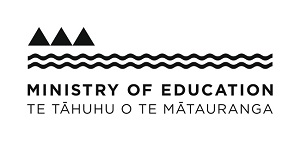

<p><img class=" alignright size-full wp-image-1955" style="margin: 5px; float: right;" alt="SND-22-wk 2-Education Legislation Bill copy copy" src="http://schoolnewsnz.fastrackdev.com/wp-content/uploads/2015/12/SND-22-wk_2-Education_Legislation_Bill_copy_copy.jpg" width="300" height="141" />The Education Legislation Bill gives schools the ability to vary opening hours, allows principals to manage more than one school, and enables licensed home based ECE providers to offer ECE and out-of-school care services for children aged 13 years and under, at the same time. <!--more--> </p>
<p>The Education Legislation Bill will improve administrative and governance arrangements in educational entities and funding organisations, including in the tertiary education sector.</p>
<p>The Bill also gives school principals, where boards agree, the ability to manage more than one school. This has been possible since 2000, but only for schools with a combined board of trustees. The Bill gives schools with separate boards the same opportunity. Schools taking up this option will be able to seek support from New Zealand Schools&#8217; Trustees Association (NZSTA) and the Ministry.</p>
<p>The Bill gives schools the ability to vary their opening hours. Currently, a school must be open for instruction for a minimum of 4 hours, consisting of a 2-hour block before noon and a 2-hour block after noon. School boards, after consultation with parents, staff and the community would be able to vary when the 2 blocks of 2 hours can be taken without seeking the Minister of Education&#8217;s prior consent.</p>
<p>This recognises that schools are increasingly seeking more flexibility to fit in with the wider range of learning options available to their students. Before making a change, boards would need to be satisfied that it would not result in students spending less time in school than other students in comparable and other local schools.</p>
<p>The Bill allows licensed home-based education and care (ECE) services to provide early childhood education and out of school care services for children aged 13 years and under, at the same time.</p>
<p>This change is subject to limits on the number of children, the delivery of a quality curriculum, the maintenance of stringent adult to child ratios and existing regulations around safety and the provision of quality learning environments.</p>
<p>The Bill makes a number of other amendments, including:<br />• enabling the use of the national student number for the purpose of establishing and maintaining student identities to support student participation in online learning enabling the State Services Commissioner to approve terms and conditions, in addition to, but not inconsistent with, those in a collective agreement; with this power then able to be delegated to the Secretary for Education<br />• the removal of unnecessary operational specifications relating to the Secretary for Education&#8217;s provision of a payroll service for school boards<br />• enabling tertiary education institutions to sponsor <a class="wpil_keyword_link" href="https://www.schoolnews.co.nz/2015/11/high-level-of-interest-in-partnership-schools-applications-welcomed/" title="partnership schools" data-wpil-keyword-link="linked" target="_blank">partnership schools</a>.</p>
<p> ;</p></p>

EXCLUSIVE: Teachers used to be paid two to three times more than minimum wage workers,…
After an “overwhelming” vote to reject the latest Government offer, secondary school teachers will begin…
Second-language learning should be compulsory, says a new report from a forum bringing together academics,…
A new entitlement aimed to improve access to learning support coordinators for schools with students…
Educators have raised questions about the Ministry of Education’s new secondary school subjects, set to…
Professional learning and development (PLD) for teachers needs to be higher impact for teachers and…
This website uses cookies.